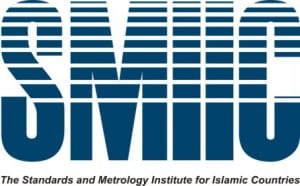Japan company building new factory with local group Lay Hong, for completion by first half of 2018
CK TAN, Nikkei staff writer

Some of the frozen food products made by NHF Manufacturing currently on sale in Malaysia.
KUALA LUMPUR — NH Foods, Japan’s largest food producer by sales, will make Malaysia the hub of its exports of halal food consumed by Muslims.
The group’s unit NHF Manufacturing, a 51:49 joint venture with poultry producer Lay Hong, will build a new factory in Selangor, a state adjacent to the Malaysian capital on the west coast of Peninsular Malaysia. With an investment of $10 million, construction of the new factory is slated to begin in early 2017. When completed in the first half of 2018, the factory will be capable of producing 1,000 tons of food monthly under the first phase, with the option to double the capacity, depending on demand.
“There is big potential for halal food in Japan,” said Hideki Fujii, an executive of NH Foods, during a press briefing, citing the increasing number of foreign visitors to Japan.
On Tuesday, the joint venture launched five variants of frozen chicken products — “kaarage” deep-fried boneless thigh meat, “chiki-chiki” bone middle wing, “amakaraage” whole thigh meat, “tebamoto amakaraage” drumettes and “menchi katsu” deep-fried ground meat. Marketed under the brand Nippon Premium NutriPlus, these products are currently available at AEON and two other local supermarkets, but the sales network will be expanded to include convenience stores and gas stations.
“Our main target is to focus on urban areas,” said Yap Chor How, Lay Hong’s executive director.
Together with NH Foods, Lay Hong is exploring opportunities in Indonesia and Thailand to expand its footprint to become an integrated food producer.
“We want to tap into NH Foods’ logistics network,” Yap added.
Lay Hong is one of the biggest poultry players in the country, boasting annual production of 500 million table eggs and 30,000 metric tons of broiler meat, according to the company’s website.
For the fiscal year ended March, NH Foods logged sales of $11.2 billion, of which 17% was from its operations abroad in 18 countries and regions.
Under its export strategy, the Malaysian unit will also produce halal-certified ready-to-eat chilled foods, including meat balls, burgers and omelets. State-of-the-art machinery will be installed at the new factory to produce easy-to-cook vegetables, as well as other Chinese foods such as dim sum. The unit hopes to export about 40% of its produce to Singapore, Japan and the Middle East.


![Japan: HDC Continues Working Relationship between Malaysia and Japan Advancing Halal Trade Initiatives Dato’ Seri Dr. Ahmad Zahid Hamidi chaired the Roundtable Session Osaka[45]](https://halalfocus.net/wp-content/uploads/2024/02/Dato-Seri-Dr.-Ahmad-Zahid-Hamidi-chaired-the-Roundtable-Session-Osaka45-150x150.jpg)
